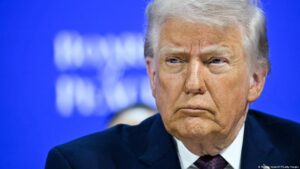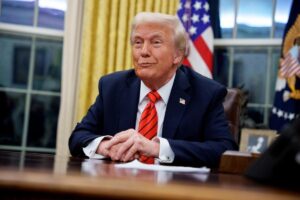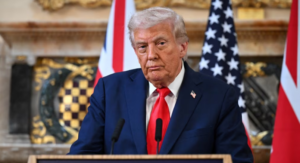
Ukraine’s export logistics entered 2026 in a new configuration, where Ukrzaliznytsia’s transition to a fixed tariff for grain car rental reduced cost volatility, according to the information and analytical agency UkrAgroConsult.
According to analysts, the main cargo flows are currently concentrated in the direction of the ports of Greater Odessa, where terminal utilization has stabilized at 50%. In early February, the number of grain cars heading for ports exceeded 9,000 units, which is associated with the active fulfillment of contracts and the need for working capital for farmers before spring field work.
“The dynamics of grain car traffic demonstrates continued pressure on infrastructure capacity. This situation indicates a resumption of activity by exporters, but at the same time leaves minimal margin for the logistics system,” experts noted.
The agency noted a shift in the competitive balance between modes of transport: railways retain a key role in mass shipments, while road transport is increasing its share due to faster turnover.
“This model of coexistence will become a long-term reality for Ukrainian exports,” UkrAgroConsult predicts.
EXPORTS, GRAIN, LOGISTICS, RAILWAYS, ROAD TRANSPORT, TARIFFS, УЗ

US President Donald Trump announced his intention to raise tariffs on a number of goods from South Korea from 15% to 25%, linking this decision to the fact that, according to him, the country’s parliament had failed to fulfill its obligations under a previously agreed trade agreement. According to Reuters, Trump wrote on social media that the increased rates would apply to South Korean cars, lumber, pharmaceuticals, and other goods subject to “reciprocal tariffs.” However, the report did not specify when the increase would take effect.
The South Korean authorities were taken by surprise by the announcement and declared their commitment to implementing the agreements; emergency consultations were held in Seoul, and relevant officials are preparing to contact the American side.
Against the backdrop of the news, South Korea’s KOSPI index fell during trading, then reversed and closed higher, while the won weakened. Hyundai Motor and Kia shares ended the session lower after a more noticeable decline during the day.
We remind you that under the agreement reached in 2025, the tariff on imports of Korean cars and auto components to the US was previously reduced to 15% from 25% and came into effect on November 1
IMPORTS, SOUTH KOREA, TARIFFS, TRUMP, US

US President Donald Trump has announced the introduction of 10% tariffs against Denmark, Norway, Sweden, France, Germany, the UK, the Netherlands, and Finland from February 1, Clash Report reports.
“Starting February 1, 2026, all of the above countries (Denmark, Norway, Sweden, France, Germany, the United Kingdom, the Netherlands, and Finland) will be subject to a 10% tariff on all goods shipped to the United States of America. On June 1, 2026, the tariff will be increased to 25%,” he wrote on the social network Truth Social.
Trump noted that these countries are directly opposing US attempts to take over Greenland.
“These tariffs will be assessed and payable until an agreement is reached on the complete and absolute purchase of Greenland,” he added.

Beijing urges Washington to adhere to previously reached consensuses and considers President Donald Trump’s threats of new tariffs a mistake, the Chinese Ministry of Commerce said.
“China urges the United States to immediately reconsider its mistaken actions, adhere to the important consensuses reached during telephone conversations between the two heads of state, safeguard the hard-won results of consultations, and continue to use the mechanism of China–US trade and economic consultations,” the statement published on the ministry’s website said.
Beijing emphasized that it stands for resolving differences through dialogue, and if Washington insists “on the wrong path,” China will take measures to protect its legitimate rights and interests.
“Deliberate threats of high tariffs are the wrong way to build relations with China,” the ministry stressed. The agency also noted that US statements about possible new tariffs are an example of double standards.
On Saturday night, Trump announced that he intends, starting November 1, “or maybe even earlier,” to impose additional 100% tariffs on goods imported from China.
“Starting November 1, or perhaps earlier, depending on China’s actions, the United States will impose 100% tariffs in addition to the existing ones. In addition, starting November 1, we will implement export control measures for any vital software,” he wrote on Truth Social.
Trump explained that he made this decision because China “declared that starting November 1 it would implement serious export control measures on almost all products manufactured in the PRC.” “This will affect all countries and is clearly a plan that China has been preparing for years,” the US president said.

US President Donald Trump has announced that from November 1, 2025, additional 100% tariffs will come into effect on Chinese imports, which will be in addition to existing tariffs.
According to him, this decision was made in response to China’s recent export restrictions on rare earth metals and other critical materials.
According to a quick analysis by the Experts Club think tank, the possible consequences for the global economy could be as follows:
1) China is likely to respond with countermeasures: the introduction of tariffs, export restrictions, or lawsuits (including through the WTO).
2) The escalation of the trade conflict could trigger a chain reaction — countries dependent on China or the US may begin to “pull” supply chains.
3) The rise in the price of Chinese components will hit electronics, automotive, and equipment manufacturing, leading to higher prices for end products.
4) Companies will be forced to look for alternative suppliers, probably in Asia (Vietnam, India) or Latin America, which will increase logistics costs.
5) Increased instability could exacerbate capital flight to safe havens — the dollar, gold — and devalue the currencies of countries that trade actively with China.
6) Shares of technology companies that depend on Chinese components will come under pressure.
Many emerging markets depend on Chinese imports. Tariff increases will lead to inflationary pressure and a deterioration in the trade balance. Geopolitical alliances may also strengthen: countries may choose between the US and China, adjusting their foreign economic policies.
There may be leaks and problems in the implementation of measures. Administrative and customs burdens may increase the cost of complying with rules of origin, and it is clear that some companies will try to circumvent tariffs through “transit” countries.

A US appeals court on Friday ruled that most of the tariffs imposed by Donald Trump were illegal, undermining the use of these levies as a key tool of international economic policy, Reuters reports.
The court allowed the tariffs to remain in effect until October 14 so that the Trump administration could appeal to the US Supreme Court.
“The decision comes amid a legal battle over the independence of the Federal Reserve, which is also likely to reach the Supreme Court, creating an unprecedented legal confrontation this year over Trump’s economic policy,” the report said.
US President Donald Trump criticized the verdict, saying it was accepted: “ALL TARIFFS ARE STILL IN EFFECT! Today, the highly partisan Court of Appeals wrongly ruled that our tariffs should be canceled, but they know that the United States of America will ultimately prevail. If these tariffs ever disappear, it will be a complete disaster for the country. It will make us financially weak, and we must be strong… Now, with the help of the US Supreme Court, we will use them to benefit our nation and make America rich, strong, and powerful again!” Trump wrote on Truth Social.
According to the publication, in a 7-4 decision, the court considered the legality of the “reciprocal” tariffs imposed by Trump in April as part of the trade war, as well as separate tariffs against China, Canada, and Mexico imposed in February.
The court noted that the International Emergency Economic Powers Act (IEEPA), to which Trump referred, does not provide the president with the direct right to impose tariffs. “It is unlikely that Congress, in enacting the IEEPA, intended to depart from its previous practice and grant the president unlimited authority to impose tariffs,” the document states.